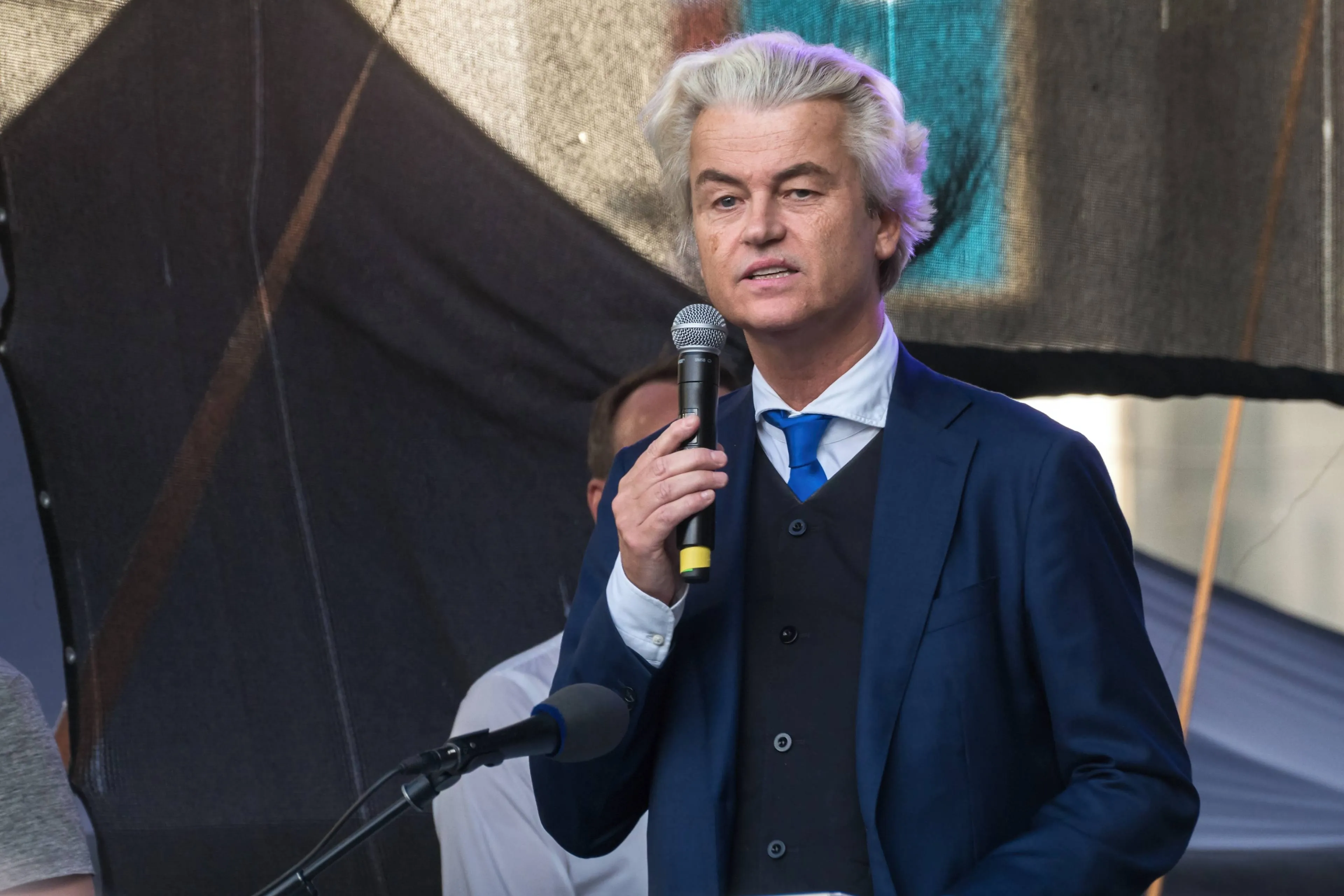Policor klimaatorthodoxie heeft ons vermogen om rationeel te denken aangetast
De door groen en links aangewakkerde klimaathysterie belemmert een rationele analyse.
Onder de titel, 'Hot Stuff, Cold Logic', publiceerde de website van de 'The American Interest' een uitstekend essay van Richard Tol, waarin hij klimaatverandering en –beleid analyseerde vanuit economisch perspectief.
Ik pik er een aantal krenten uit.
Politically correct climate change orthodoxy has completely destroyed our ability to think rationally about the environment.
Climate change is sometimes called humanity’s biggest problem. Ban Ki-moon, Christine Lagarde, and John Kerry have all said as much recently. The mainstream Western media often discuss climate change in catastrophic, or even apocalyptic, terms. Indeed, if you take newspaper headlines seriously, the Fifth Assessment Report of Working Group II of the Intergovernmental Panel on Climate Change came accompanied by the Four Horsemen of the Apocalypse; predictions of famine, pestilence, war, and death proliferated hither and yon. Conversely, when, on November 11, 2014, the United States and China inked an agreement on climate whose actual consequences are at best liable to be indistinct, banner headlines broke out, as though messianic times were nigh.
Assuming it falls somewhat short of the Four Horsemen of the Apocalypse, how serious will the impact of climate change be really? How much do we know about these impacts? What are the implications for policy? ...
Tol stelt dat klimaatverandering van alles kan betekenen en allerlei effecten kan hebben, maar dat betekent niet noodzakelijkerwijs een verslechtering van de situatie.
For some, the mere fact of these impacts is reason enough for governments, businesses, and individuals to exert themselves to reduce greenhouse gases to minimize the change. That is strange logic, however. Change, after all, can be for the better or the worse, and at any rate it is inevitable; there has never been a lengthy period of climate stasis.
Just as there is no logical or scientific basis for thinking that climate change is new, there is no self-evident reason to assume that the climate of the past is “better” than the climate of the future. ...
Others argue that the impacts of climate change are largely unknown but may be catastrophic. The precautionary principle thus enjoins that we should work hard, if not do our utmost, to avoid even the slim possibility of catastrophe. This logic works fine for one-sided risks: We ban carcinogenic material in toys because we do not want our kids to get cancer. Safe materials are only slightly more expensive, and there is no likely or even imaginable “upside” to children having cancer. Climate policy, on the other hand, is about balancing risks, and there are risks to climate policies as well as risks caused by climate change. …
What this means is that, instead of assuming the worst, we should study the impacts of climate change and seek to balance them against the negative effects of climate policy. This is what climatologists and economists actually have done for years, but their efforts have been overshadowed by the hysteria of the Greens and the Left, and the more subtle lobbying of companies yearning for renewables subsidies and other government hand-outs. It is especially important to maintain an objective attitude toward the tradeoff between possible dangers and the costs of policy, because estimating the impacts of climate change has proven to be remarkably hard.
Vervolgens geeft Tol een aantal voorbeelden van onderzoek naar (de kosten) van deze effecten, vaak onder de veronderstelling van ceteris paribus (als de overige omstandigheden gelijk blijven). Lees verder op pagina twee.
Maar:
If one studies the impacts of sea-level rise, one needs to cope with subsidence and tectonic movements, changing land use, shifting priorities in coastal zone management, eutrophication, and more besides. The same is true for all past climate change impacts: Many things are changing, often much faster than the climate, and in ways that confound all unifactoral explanations potentially relevant to policy. The future is not ceteris paribus. It’s ceteris imparibus. Change happens, pretty much all the time ....
Impacts of climate change are so many and so diverse, varying over space, over time, between impacts, and across scenarios, that it makes no sense to speak of “the” impact of climate change. People have tended to produce two solutions for this problem. Some just write about their favorite impact (or perhaps about the impact that supports their political position), pretending that this impact is somehow representative of all other impacts. Others add up impacts. This exercise is just as fraught as adding up all those proverbial apples and oranges, but it at least reflects the sum total of our knowledge, and the inescapably subjective elements in aggregation are well understood.
Impacts of climate change are so many and so diverse, varying over space, over time, between impacts, and across scenarios, that it makes no sense to speak of “the” impact of climate change. People have tended to produce two solutions for this problem. Some just write about their favorite impact (or perhaps about the impact that supports their political position), pretending that this impact is somehow representative of all other impacts. Others add up impacts. This exercise is just as fraught as adding up all those proverbial apples and oranges, but it at least reflects the sum total of our knowledge, and the inescapably subjective elements in aggregation are well understood.
Climate change is a problem, but at least as an economics problem, it is certainly not the biggest problem humankind faces. The euro crisis knocked off a third of the income of the people in Greece in five years’ time. Climate change does not even come close. And the people of Syria wish their problems were as trivial as those of the Greeks. Climate change is not even that large compared to other environmental problems. Urban air pollution kills millions of people per year in Asia. Indoor air pollution kills millions of people per year in Africa. The health problems related to climate change are unlikely to cause similar carnage before the end of the century.
The estimates of the total impact of climate change call for a modest tax on greenhouse gas emissions—or perhaps a cap-and-trade system with a generous allocation of emission permits. The best course of action is to slowly but surely move away from fossil fuels, and in that, as usual, both markets and the parameters governments invariably set for markets to function have roles to play.
Dit lijkt mij niet zo'n goed idee. Het meest recente wetenschappelijk onderzoek wijst op een veel lagere gevoeligheid van de temperatuur voor CO2 (climate sensitivity) dan tot voor kort werd aangenomen. In dat licht gezien is belasting van CO2–emissies m.i. niet effectief en dus nutteloos.
Richard Tol gaat vervolgens uitvoerig in op de effecten van klimaatverandering en – beleid op de Derde Wereld, waarbij hij vooral aandacht schenkt aan energie.
There is an even more direct link between climate policy and development. Cheap and abundant energy fueled the industrial revolution. Sudden increases in the price of oil caused many of the economic recessions since World War II. Lack of (reliable) electricity retards growth in poor countries, not just today through its effect on production, but also in the future, as electric light allows kids to do their homework after sunset.
A fifth of official development aid is now diverted to climate policy. Money that used to be spent on strengthening the rule of law, better education for girls, and improved health care, for instance, is now used to plug methane leaks and destroy hydrofluorocarbons. Some donors no longer support the use of coal, by far the cheapest way to generate electricity. Instead, poor people are offered intermittent wind power and biomass energy, which drives up the price of food. But the self-satisfaction environmentalists derive from these programs does not put food on poor peoples’ tables.
In sum, while climate change is a problem that must be tackled, we should not lose our sense of proportion or advocate solutions that would do more harm than good. Unfortunately, common sense is sometimes hard to find in the climate debate. Desmond Tutu recently compared climate change to apartheid. Climate experts Michael Mann and Daniel Kammen compared it to the “gathering storm” of Nazism in Europe before World War II. That sort of nonsense just gets in the way of a rational discussion about what climate policy we should pursue, and how vigorously we should pursue it.
Aldus Richard Tol.
Lees verder hier.
Een uitstekend essay! Aanbevolen voor klimatofielen van alle gezindten.
Voor mijn eerdere DDS–bijdragen zie hier.
Ga verder met lezen
Dit vind je misschien ook leuk
Laat mensen jouw mening weten
Lees ook
Loading


